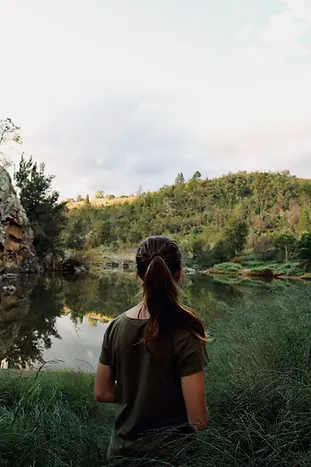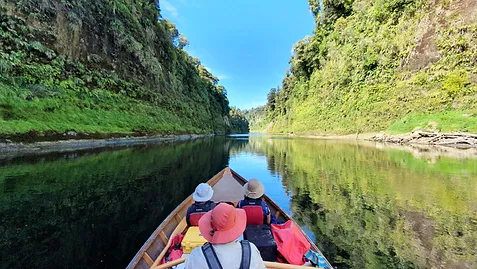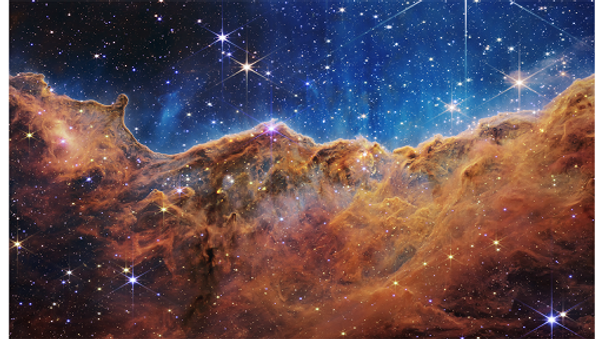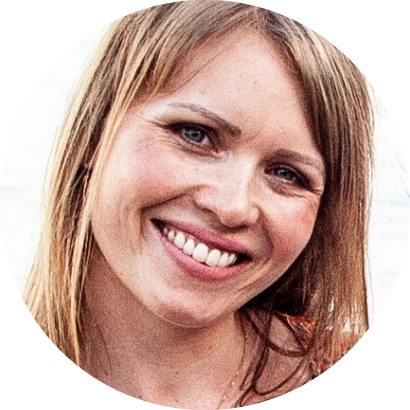In the recent blog post “The Gifts we are Given and Whole Systems Change” David Patterson, Common Earth founder, wrote of two gifts: The gift of Insight and the gift of Community. In this blog post, I’d like to explore these gifts to see how they can help inform us of our path forward as we navigate the heat crisis and its many tentacles.
The first gift, the gift of “Insight”, David spoke of as an anonymous gift:
“We are often not looking for it, but it just shows up one day at our front door. Insight surprises us because we find that we can go back to that door repeatedly and find a gift of new insight each time. The “door” in this case is just a matter of getting rested and having our minds in a quiet state.”
In “The Journey of the Universe” (a documentary we watch in our course), Brian Thomas Swimme points to how “insight” came as a part of evolution. A consciousness evolved and we became able to reflect upon ourselves. It gave birth to symbols, which magnified consciousness and created a positive feedback loop that is still ongoing today. Swimme speaks to it as an emergence of “symbolic consciousness.” It enabled humans to express their minds not just internally but externally and thus laid the foundation for shared knowledge from which cultures and societies emerged. In other words, we humans became able to share our insights in ways that allowed other people to reap the benefits (and suffer the consequences). The current movie, Oppenheimer, is a good example of this.
For many years humans lived in deep reciprocity and thus connection to nature. It was a sacred relationship based on an animistic narrative which denotes a belief system in which human beings are not separate from the environments from which they have evolved. Instead, all life was perceived as being alive and interconnected in a reciprocal relationship with other living beings.

With the Copernican revolution and its major discoveries within astronomy, our path took a different turn. The ensuing Scientific Revolution undoubtedly led to magnificent discoveries and yet we are also feeling the unexpected consequences as this development set the pillars for the crisis, we are finding ourselves in today. Our connection to the planet has suffered as our relationship changed from one of reciprocity to a more “one-way street” of extraction and exploitation. The narrative of being intertwined with nature was replaced with that of being separate, and even above, nature. Our lens was reduced to viewing nature through its parts and the methodology developed to pursue new knowledge became one of reducing and dissecting the object of study into smaller and smaller pieces while forgetting the importance of the whole being more than the sum of its parts. In the process, we gained so much power that it can feel like we fell under a spell of “exceptionalism” – that we are somehow different and separate from the rest of nature due to our success in manipulating our surroundings. In Swimme’s words, we became a planet-altering species living on an earth shaped by human consciousness.
What is important to remember here is that humans do not tend to act out of reality but rather through socially constructed narratives. In other words, the reinforcing feedback loop that Swimme pointed to, keeps amplifying as our consciousness is magnified through the narrative which we have created for ourselves. That does not have to be problematic and there are many Western narratives that have greatly enhanced our society like the creation of “Human Rights.” The problem from an ecological and environmental point of view is when our constructed perceptions do not match the actual biophysical reality of the planet.
This is essentially the root cause of the ecological and environmental crises we are finding ourselves in, combined with the fact that we are no different from other species in terms of our potential to be unsustainable by exceeding our physical constraints. Ecologist, William Rees points out three capacities we share to underline this point:
“The first is a tendency to grow exponentially in favorable environments. Every species exhibits exponential growth in a favorable environment. The second is that we tend to expand into all available habitat. And no species other than humans occupies the entire surface of the earth, even habitats that aren’t favorable because we alter them to suit ourselves. And the third thing is we tend to use up all accessible resources. Now if you put those three things together and add technology, you have a situation which sets us free to essentially pillage the planet.” (The Great Simplification Podcast, Roundtable #2, 00:38:02)
He goes on to explain the role that fossil fuels have played in terms of growing exponentially as a species. This is clear as before the industrial revolution, we were held in check by negative feedback loops in the form of a shortage of resources, diseases etc.
In the Common Earth Course, we explore the concepts of exponential growth and what energy is tethered to – it is not hard to see that our current economic model uses a narrow lens that ignores the limits of the biophysical reality it relies on. There are many unintended consequences of this narrative – the heating of our planet is one that is increasingly difficult to ignore as David Patterson has pointed out in the article “This IS happening! But we STILL have Choices.”
As we lay our path forward, we need to be clear on what is “real” and what is “made up.” That our planet is warming is not made up, it is happening. That methane’s heating potential over the short term is much higher than carbon dioxide is also indisputable. But the narratives that have brought us to the crises are entirely made up. This is very good news as it means we can construct new ones. In the book “The Dawn of Everything” the authors, David Graeber and David Wengrow do a brilliant job of challenging our most fundamental assumptions about social evolution as they make clear that there are other ways of organizing society. And perhaps even more important, we are fortunate to be sharing this planet with groups of people who already live from a different understanding than most of us in terms of what it means to live as part of nature rather than apart.
Examples of this are countries like Bolivia, which has passed laws granting all nature the same rights as humans. In Costa Rica, there is equally a strong focus on the importance of ecology with more than 98 percent of its energy being renewable and a deep commitment to recover its forest cover which now stands at more than 53 percent after decades of deforestation. Another example is New Zealand which in 2017 passed a groundbreaking law granting personhood status to The Whanganui River as part of a settlement with Māori tribes who have long viewed the river as a living force. The law declares that the river is a living whole, from the mountains to the sea, incorporating all its physical and metaphysical elements. This novel legal approach set a precedent that has been followed by other countries including Bangladesh and India. Another (and very) recent example took place this August of 2023, where a judge in Montana sided with young environmental activists who had sued the state agencies on grounds that it was violating their constitutional rights to a clean and healthful environment by permitting the development of fossil fuels. And lastly, as you probably are already aware, regenerative agriculture which we also discuss in the course, is not a new concept. It is a practice that has been upheld for hundreds of years by indigenous people around the world and is now gaining attention for its ability to restore ecosystems and promote the health of the planet through biodiversity.

But while this movement continues to build momentum, it is important not to forget that, as David Patterson stated in his latest blog post: “Our earth is on fire.” In this light, Common Earth has suggested a shortcut to mitigate the short-term heating of our planet by cutting out (or reducing) our consumption of beef. In short, the reason is the overwhelmingly higher heating potential of methane compared to carbon dioxide and the potential cooling effect it would have in the atmosphere if we significantly reduced it. This would buy us precious time to put more long-term solutions in place. This is a very rational suggestion that we can make sense of with our minds. But as with all behavior change, we often need to “feel” it in addition to understanding it, regardless of how convincing the message is. In other words, we need that first gift of insight which, as David reminded us, tends to come when our minds are in a quiet state.
This got me reflecting on the practice of eating and how often we (in the West) are not fully present while having our meals. It reminded me of a mindfulness course I took years ago where among other things we were introduced to “mindful eating”. And, whether you choose to eat beef or not, there are great benefits in building a deeper connection to whatever food you are consuming. Perhaps next time you have a meal, you can reflect on some of these questions:
-
Where did your food come from?
-
How did it get on your plate?
-
How is what you are putting on your plate sustaining our planetary health?
-
How is it sustaining your health?
-
What does that invoke in you?
This is by no means meant to get anyone to feel guilty about their choices – that guilt would just add extra “made-up” complexity to our own personal narratives. It is rather to build an awareness and connection to the very life that sustains our life. The web of life that we are as much a part of as any other lifeform on this planet. This brings me to the second gift: The gift of community. The article mentions how communities can take many shapes and forms. It can be an immediate community with people who are physically present, and it can be a virtual community like the one we have formed here at Common Earth. And most importantly it is recognizing the planetary community that has emerged from molten rock to life as we know it. Just think of the animal kingdom and its rich diversity in species and ways of expressing life. Think of the plant kingdom and how we are just starting to learn that it too communicates through vast mycorrhizal networks. These networks are interwoven with the soil, its rich microbiome AND the human microbiome (if we grow our food in the soil. When the microbiome of the soil is healthy it affects our microbiome positively. And when the diversity decreases so does the diversity in the human gut microbiome which has a negative effect on our health. It is just another example of how interwoven we are with all life on this planet, whether it is animals, plants, or soil. When we truly see our community as “planetary” it changes our “being” in the world. And unless you were blessed with an upbringing that conditioned you in this narrative, it is a journey – one that I personally am still on and believe I will stay on for the rest of my life. Because to truly see this, feel it, embody it, it takes more than just a convincing of minds.
David likes to point out that “There is only ever one thing going on here and that’s the big bang”.
And to that, I’d like to add:
There only is ever one community coming forth and that is the planetary community which includes all of life.



